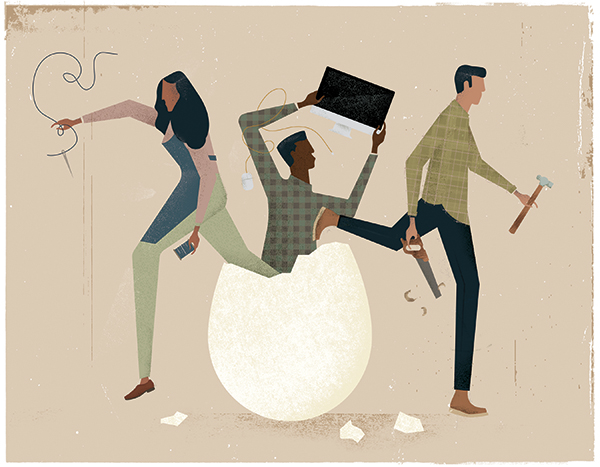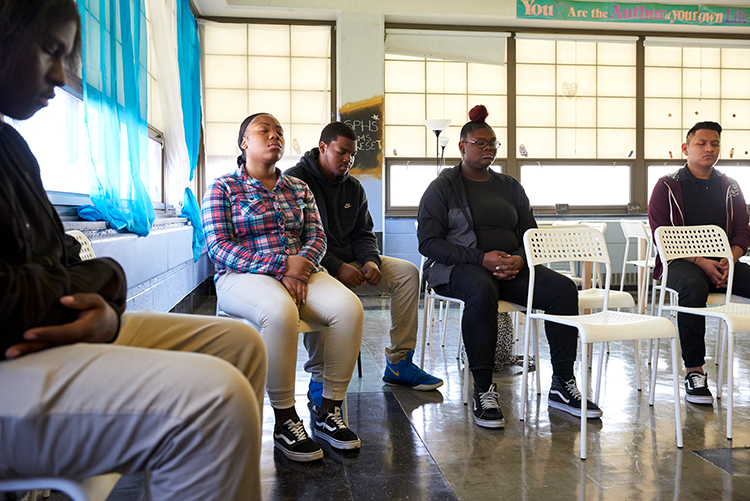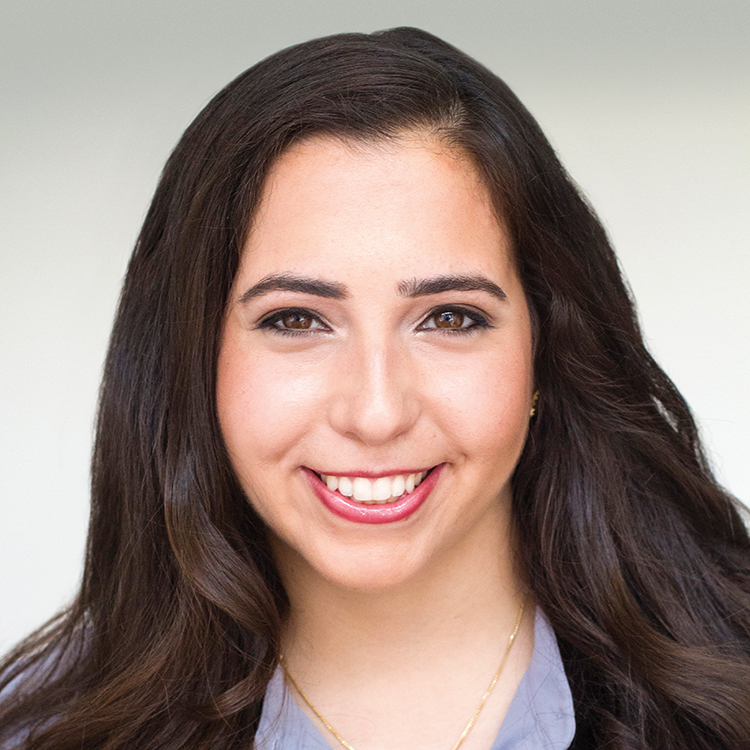Illustration by Mike L. Perry
The Unmaking of DM+D
by Alex Vuocolo
For the Department of Making + Doing (DM+D), a collaborative makerspace situated on the western edge of University City, location is a blessing and curse.
Michael Darfler, program manager at the space, says that DM+D owes much of its success to its ground-level location at 3711 Market Street and its glass storefront, which creates a sense of transparency and inclusion that is unique among makerspaces.
The 4,000-square-foot space contains a woodshop, a laser-cutter, computers, sewing machines, and a full set of hammers, saws, screwdrivers and other hand tools. It attracts a mix of first-timers, hobbyists and youth through planned programming, events and drop-in days.
“Our location is incredible,” Darfler says. “It provides so much exposure to people that are just walking by, seeing what we’re doing, getting interested. On a daily basis, people come in and ask, ‘What is this place?’’’
But taking up prime real estate in University City, among the fastest growing economic hubs in Philadelphia, has a downside as well: the rising cost of rent.
“The trajectory of rent in this area is only on the up,” Darfler says. “It was pretty much fully half of our budget.”
As a result, DM+D will shut down at the end of November after nearly three years in operation. Of the four partner organizations that use the space, three of them—Public Workshop, the Hacktory and NextFab—will move to separate locations.
“That’s really just the nature of real estate in University City,” says Kristen Fitch, manager of marketing and media relations for the Science Center, which owns the space and uses it for its own youth education program, FirstHand.
Research confirms this: A 2014 report from the University of Pennsylvania’s Fels Institute of Government found that University City has experienced the most severe rent appreciation in Philadelphia, increasing by over 60 percent since 2010.
“Without substantial grant funding, due to the rent increases and the steadily rising popularity of that corner [38th and Market streets], there’s no way that we could stay there,” says Alex Gilliam, director of Public Workshop, a design firm devoted to engaging youth and improving communities through design and building.
Yet, as Gilliam points out, the organizations themselves have never been stronger.
“I can say without hesitation that each one of the organizations is stronger [as a result of DM+D],” he says.
His own organization is now picking up projects all over the country, including in other major cities such as Detroit and Chicago. It is also working on setting up other makerspaces in schools around Philadelphia, as well as moving to a new headquarters on Lancaster Avenue. The Hacktory, which focuses on the intersection of technology and hands-on making, is also moving to Lancaster Avenue. Prior to DM+D, the Hacktory was an informal group of tech/making enthusiasts. Now it’s a 501(c)3 nonprofit.
The Science Center’s FirstHand program, aimed at teaching science, technology, engineering, art and math (STEAM) to youth, has grown into a nationally recognized program since DM+D was created.
“Looking at the impact of what this space has done for partner organizations, it was a success,” Darfler says. “We set out to really grow these organizations, and it worked.”
While Darfler and Gilliam recognize DM+D as a success, they both would like to see inclusive makerspaces continue to exist in University City, even if DM+D has run its course.
The closing of DM+D “raises a really good question about the accessibility of programs like these,” Gilliam says. “How do we keep it accessible to everyone?”










